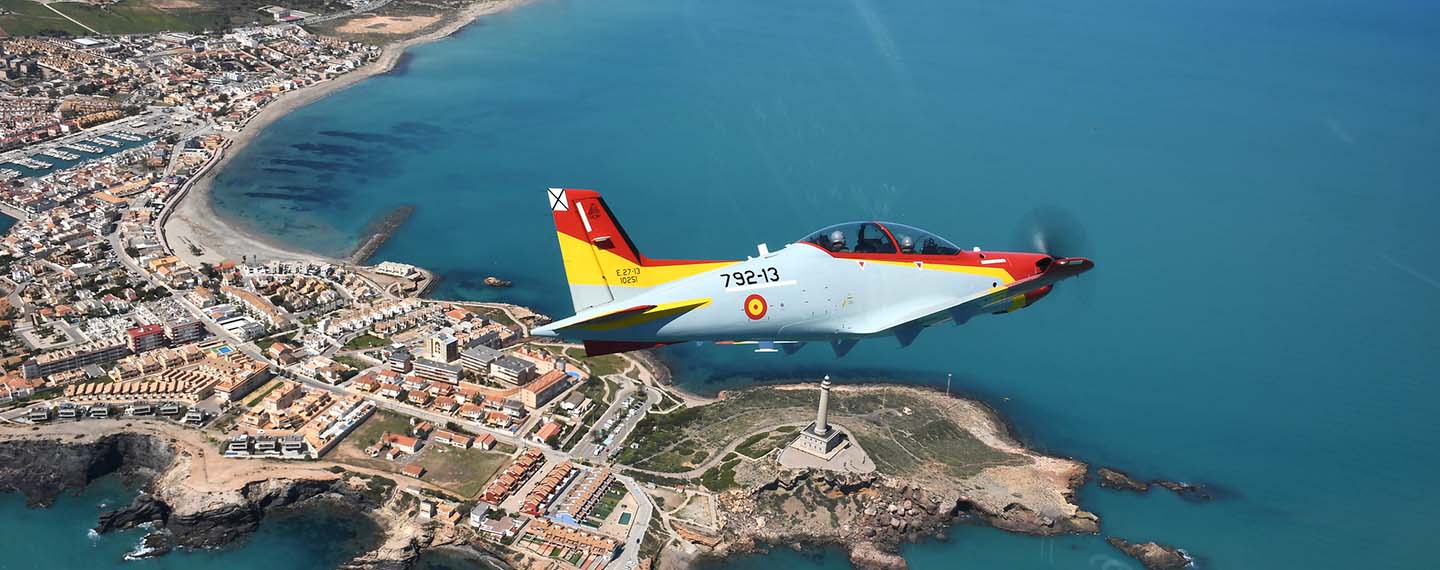Theme
Following the 2023 call results, Spain is performing positively in the European Defence Fund.
Summary
Since 2021 there have been three calls of proposals under the European Defence Fund (EDF). The 2023 results publicly released by the European Commission in May 2024 reveal that Spain continues to perform well as to the Fund. This can be seen in the way Spain is involved in the majority of projects and how it is playing the role of coordinator in several important defence research and development projects. For this successful role, Spain relies on a diversified defence ecosystem made up of firms, specialised colleges and research institutes. The country relies on a several large defence firms to ensure efficient project management, and it is increasing its collaborative role in key military domains such as defence innovation, air combat, information superiority, ground combat and more. Thus, the 2023 EDF call results ring a positive note for Spain’s continued role in developing the European Defence Technological and Industrial Base.
Analysis
On 16 May 2024 the European Commission released the results of its latest call for proposals under the European Defence Fund (EDF).[1] This is now the third set of results released by the Commission and the publicly available data reveals more about how EU member states cooperate on defence research and prototyping at the EU level. In fact, the 2023 EDF call results reveal that the Commission has invested €1.03 billion in 54 collaborative defence research and development projects. This is an increase on the 2022 EDF call results, which saw €832 million invested in 41 projects,[2] but a decrease compared with the 2021 EDF call results of €1.2 billion invested in 60 projects.[3] Overall, the 2023 results see further investments in cyber defence, ground, air and naval combat, and space, while there has been an additional push on projects designed to stimulate innovation among small and medium-sized enterprises (SMEs).
The aim of this paper is to ascertain how Spain has performed in the 2023 EDF call results, and to compare its performance with 2021 and 2022. In this respect, the aim is to learn how Spanish firms and institutes have benefitted from the EDF, in what military capability domains Spain specialises in and how it engages with entities from fellow EU member states. Past research on this matter has revealed that Spain plays a key role in important military domains for Europe and its diverse defence ecosystem positions the country to play a coordinating and supporting role in many EDF projects. This, it was argued, demonstrates not only Spain’s key role in the European Defence Technological and Industrial Base (EDTIB) but a determination to further enhance Spain’s domestic defence industrial base.[4]
In global terms, Spain can be said to be a preferred partner of choice when launching EDF calls and projects, based on its technological base and its capacity for project management and innovation. For example, in 2023 Spanish entities were involved in 40 of the 54 funded projects, which confirms Spain’s high involvement rate since the EDF was created: in 2021 Spain was involved in 42 of 60 projects and in 2022 it participated in 32 of 41 projects. Further still, Spain’s political and financial investment in the EDF is clearly making a solid financial return with Spanish entities involved in projects that have secured €1 billion worth of EU contributions –this compares favourably with the €722 million in 2022 and €1 billion in 2021–.
1. The European picture
Ever since the first EDF call results in 2021, it has become easier to understand how EU member states invest their time and resources in collaborative defence projects at the EU level. For the EDF call results, the EU has placed the bulk of its investments in the naval domain (€288 million), space (€158 million), information superiority (€140 million) and underwater capabilities (€129 million). As Figure 1 shows, however, since 2021 there have been increased investments in vital sectors such as sensors, space, cyber, materials and components, and information superiority.
In addition to the military domains in which the EDF is investing its resources, the data reveal how each EU member state is benefitting from the Fund. It is no surprise to learn that the EU member states with the better established and sizeable defence industrial and technological bases are better positioned to secure funding. As Figure 2 shows, France leads the way in how many entities it has involved in EDF projects since 2021 (366 entities) but Italy (320), Germany (295), Greece (171), Netherlands (129) and Belgium (106) are performing well too. For its part, there are 291 entities involved across the 2021, 2022 and 2023 EDF call results, making Spanish entities some of the most cooperative and engaged in the Fund from across the EU. In Spain’s case, 117 entities were involved in the 2021 call results compared with 88 in 2022 and 86 in 2023. The decline should not be a cause of concern, however, as in 2023 Spain recorded the fourth highest participation rate (86 entities) after France (117), Germany (104) and Italy (103).
The EDF call result data for 2023 also enable us to have a fuller picture of the military and technological domains each EU member state cooperates in under the Fund. As Figure 3 reveals, since 2021 45 entities from Spain are involved in projects devoted to defence innovation, although it has a strong involvement in projects related to air combat (24 entities), digital transformation (25), ground combat (23) and space (24).
2. The Spanish picture
In each of the projects shown in Figure 3 there are a range of Spanish entities based on a diverse set of technological and innovative attributes. For instance, the 2023 call results saw the involvement of 36 major Spanish defence firms (such as Navantia, Escribano, GMV, Airbus, Sener, Indra, Santa Barbara and more), 10 technical institutes and state agencies and seven universities (Vigo, Murcia, Madrid, Castilla-La Mancha, Barcelona, Valencia and Catalunya). The involvement of this diverse set of industrial and technical actors only serves to re-emphasise the conclusion reached in past analyses that Spain is served by a diverse and innovative defence ecosystem.[5] Having these Spanish entities involved in pan-European defence projects meets Spain’s long-standing goals of not only playing an engaged role in EU security and defence, but also to ensure the internationalisation of the Spanish defence sector.
This diverse defence industrial ecosystem also allows Spain to play a collaborative role in multiple military technology domains. In this respect, Spain is not restricted to niche technological sectors and it can flex its industrial and technological muscles in multiple domains simultaneously. As Figure 4 indicates, Spanish entities are present in all technology domains that are financially supported under the EDF. The data here reveal that Spanish firms and institutes are mainly involved in defence innovation, ground combat, air combat and information superiority. Nevertheless, the data also show that Spanish entities have increased their presence in cyber and force protection and mobility projects since 2021. What is also noticeable is that Spanish entities were not present in sensors or simulation and training projects in 2023.
Furthermore, the 2023 data on the EDF calls confirms that Spain is seen as a reliable and efficient project coordinator for EDF projects. To be clear, being a project coordinator for any EDF project not only implies a responsibility for managing the project consortium, but also that the project coordinator is responsible for the initial project idea and in bringing together partners from across Europe for the call for proposals. Thus, a project coordinator plays a vital role in the initiation and life-blood of any EDF project. Figure 5 shows that Spain is one of the leading member states for project coordination, as it is responsible for 30 projects, surpassed only by France (with 42). However, project coordination is only one part of the story, as it is necessary to analyse the financial volume of the projects being managed. In Spain’s case, the 30 projects it coordinates since 2021 amount to €470 million, calculated in terms of the euro contributions to the projects under the EDF. In this regard, Spain ranks third among EU member states in terms of project value with only France (€1.06 billion) and Italy (€612) surpassing it –Germany is below Spain at €261 million–.
Conclusions
The publicly available data on the EDF released by the European Commission shows that Spain plays an important industrial and political role in helping to develop the EDTIB and European security. Although the EDF pertains only to defence innovation and development –so therefore at the earlier stages of defence industrial development–, the data for 2023 confirm that Spain is a wholesale beneficiary from the Fund. This not only validates its involvement in EDF projects since 2021, but also demonstrates that the Fund remains an attractive financial incentive tool for EU defence cooperation. Spain plays its full industrial and technological role in military domains that are increasingly essential for Europe’s defence, and the country and its firms/institutes are seen as essential partners and leaders for a great many EDF projects. The Fund has emerged as a tool, albeit with limited financial resources (€8 billion for 2021-27), that can promote defence cooperation and allow Spain to Europeanise and internationalise the excellence of its domestic defence industrial base. Finally, continuing to benefit from the EDF means that Spain is well-placed to make the political case for further EU-level investments in defence, especially with the planned European Defence Industrial Programme (EDIP) for joint defence procurement on the horizon. In this regard, Spain has the opportunity to further promote the excellence of its national defence ecosystem.
[1] European Commission (2024), ‘Results of the EDF 2023 Calls for Proposals’, 16/V/2024.
[2] European Commission (2023), ‘Results of the EDF 2022 Calls for Proposals’, 26/VI/2023.
[3] European Commission (2022), ‘European Defence Fund 2021 Calls for Proposals – Results’, 20/VII/2022.
[4] Daniel Fiott (2023), ‘Investing and innovating? Spain and the European Defence Fund’, ARI, Elcano Royal Institute, 28/VIII/2023.
[5] Fiott (2023), op. cit.



